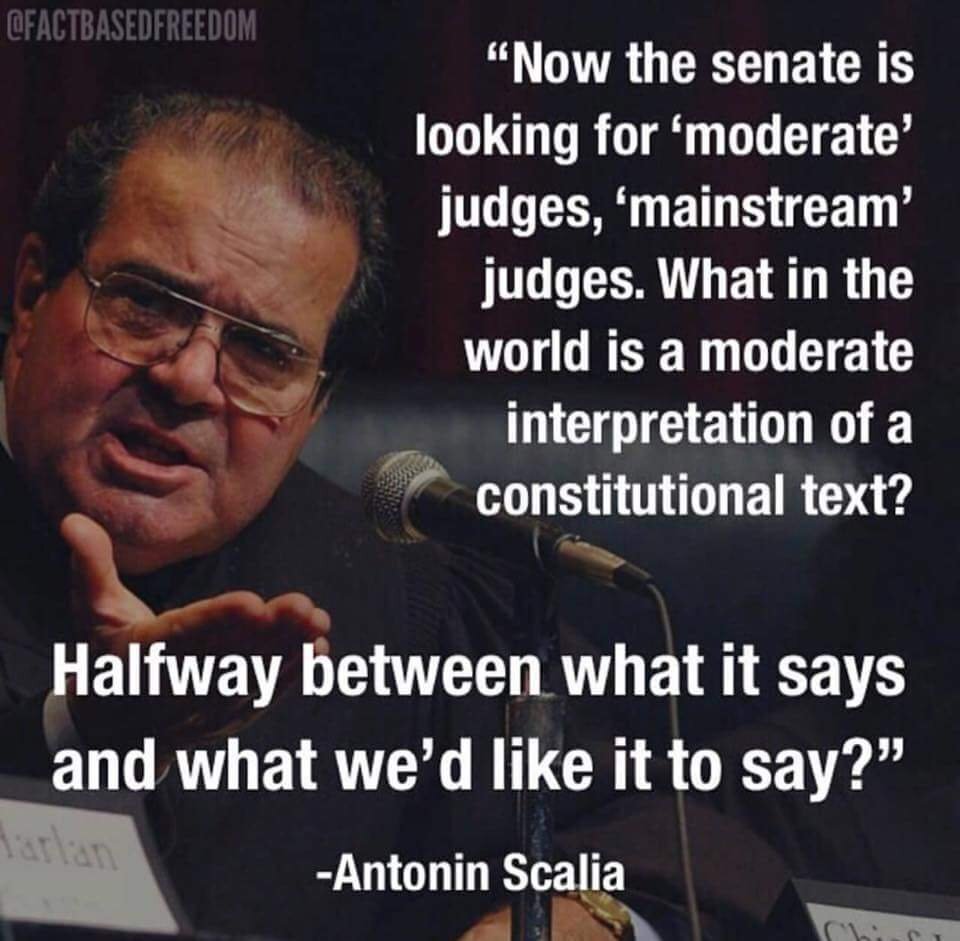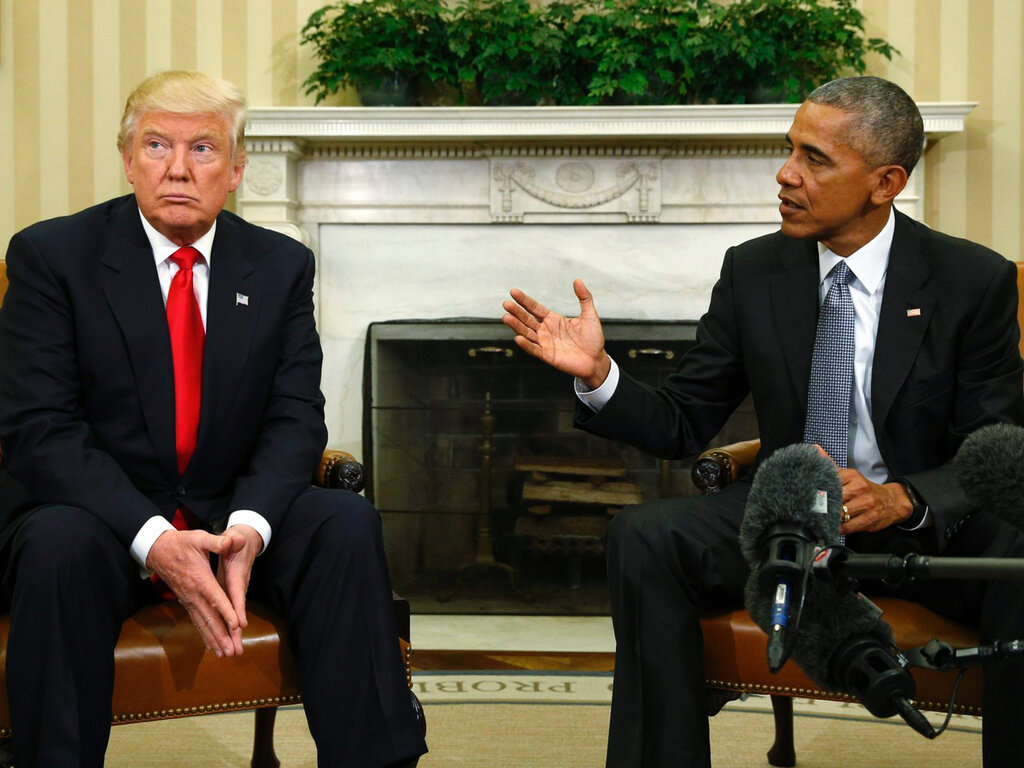Senator Susan Collins Stokes the Embers of Civil War
 Senator Susan Collins (R. Maine) echoes an ugly history when she says she will only support a Supreme Court nominee who upholds “established laws” like Roe v. Wade.The readers of these pages know that I was able to purchase a tablet computer a few months ago with limited opportunities for various types of electronic communication. People “out there” can send personal letters to me electronically and can even attach photos to them. The first such photograph I received was from my niece, Emily. She excitedly attached an image taken the day before from the second trimester prenatal ultrasound of her daughter who in a matter of months will enter our world.It is not exactly a daily event that I am sent an image like this. Many of the men around me were sipping their coffee before work at 6:00 AM. They had their tablets open and were showing off their first photos from their loved ones. When I opened the image attached to my message from Emily, I gasped. It was a shocking image, but I mean that in a most wondrous sense. It was just something that caught me entirely off guard.Many of the fathers, uncles, and grandfathers around me came over to where I sat and marveled at the image on my screen. There was a hand grasping a foot, drawing it up in front of a tiny but beautiful face, the picture of serenity. “Wow!” I heard again and again as these men stared in wonder. Then one followed his “Wow” with, “I used to be kind of lukewarm on pro-life issues, but who could look at this and stay that way?”These Stone Walls has a lot of readers in Washington, DC and the surrounding area. In fact, we have far more readers in the nation’s capital than we do in the New Hampshire capital where I write as a guest of the state. A weekly stats report shows that Washington is often among the top 10 cities visiting TSW. In recent weeks, a post I wrote before the presidential election of 2016 is having a resurgence of interest in Washington. It is “Hillary Clinton v Donald Trump: The Burden of a Vote.”In that 2016 post, I wrote that the identity of the next occupant of the White House may be of secondary importance to the future welfare of this nation than the fact that he or she will likely nominate one and possibly two judges for lifetime appointments to the U.S. Supreme Court. I suggested that the candidates’ personalities (or lack thereof) might not be our sole measurement for the presidency at this particular time.A SENSE OF DÉJÀ VU FROM RONALD REAGAN
Senator Susan Collins (R. Maine) echoes an ugly history when she says she will only support a Supreme Court nominee who upholds “established laws” like Roe v. Wade.The readers of these pages know that I was able to purchase a tablet computer a few months ago with limited opportunities for various types of electronic communication. People “out there” can send personal letters to me electronically and can even attach photos to them. The first such photograph I received was from my niece, Emily. She excitedly attached an image taken the day before from the second trimester prenatal ultrasound of her daughter who in a matter of months will enter our world.It is not exactly a daily event that I am sent an image like this. Many of the men around me were sipping their coffee before work at 6:00 AM. They had their tablets open and were showing off their first photos from their loved ones. When I opened the image attached to my message from Emily, I gasped. It was a shocking image, but I mean that in a most wondrous sense. It was just something that caught me entirely off guard.Many of the fathers, uncles, and grandfathers around me came over to where I sat and marveled at the image on my screen. There was a hand grasping a foot, drawing it up in front of a tiny but beautiful face, the picture of serenity. “Wow!” I heard again and again as these men stared in wonder. Then one followed his “Wow” with, “I used to be kind of lukewarm on pro-life issues, but who could look at this and stay that way?”These Stone Walls has a lot of readers in Washington, DC and the surrounding area. In fact, we have far more readers in the nation’s capital than we do in the New Hampshire capital where I write as a guest of the state. A weekly stats report shows that Washington is often among the top 10 cities visiting TSW. In recent weeks, a post I wrote before the presidential election of 2016 is having a resurgence of interest in Washington. It is “Hillary Clinton v Donald Trump: The Burden of a Vote.”In that 2016 post, I wrote that the identity of the next occupant of the White House may be of secondary importance to the future welfare of this nation than the fact that he or she will likely nominate one and possibly two judges for lifetime appointments to the U.S. Supreme Court. I suggested that the candidates’ personalities (or lack thereof) might not be our sole measurement for the presidency at this particular time.A SENSE OF DÉJÀ VU FROM RONALD REAGAN Since then, what I wrote has come to pass, and not for the first time in memorable history. You may have noticed how sanitized the language has become in court cases and media coverage since Roe v. Wade in 1973. Words like “mother” and “infant” are avoided. “Reproductive rights” and “fetal tissue” are the limits of political correctness. The only rights considered are those that exclude the interests of both motherhood and personhood.At the end of President Ronald Reagan’s first term in office in 1984, both sides of the abortion debate realized that the next president, like the current president, could have a major impact on the makeup of the Supreme Court. In 1984, the pro-choice camp led by NARAL - the National Association to Repeal Abortion Laws - thus made the defeat of Ronald Reagan its top priority.But Reagan won a second term, and a year into that term, Chief Justice Warren Burger retired from the Supreme Court. President Reagan named Justice William Rehnquist as Chief Justice, and then nominated a Catholic pro-life supporter, Antonin Scalia to fill the vacant Supreme Court seat.One year later in 1987, Justice Lewis Powell also resigned. Reagan’s nominee was the highly respected Constitutional expert, Judge Robert Bork. However, abortion champion Senator Ted Kennedy destroyed his nomination with a high profile and relentless propaganda campaign.Reagan then nominated Anthony Kennedy whose judicial background convinced Reagan that he might support overturning Roe v. Wade. Reagan was a popular president, but his supporters recognized the critical importance of assuring a second term, not only for his legacy, but for the future direction of the nation.This is the mirror image of what is happening in Washington now. The exception, of course, is that in some circles President Trump is far less popular. He is certainly no Ronald Reagan who was dubbed “The Great Communicator.” Trump is more likely to be remembered as “The Great Disrupter.” But there are many in this nation who think that disruption of politics as usual is not necessarily a bad thing right now.I just cannot get past the fact that as the 2016 presidential primary season opened, there were 16 seasoned professional politicians and one wide-eyed outsider, Donald Trump, on the presidential primary stage. In the end there was only Hillary Clinton v. Donald Trump, and the nation spoke in apolitical language that “politics as usual” ignores to its peril.SENATOR SUSAN COLLINS STOKES THE EMBERS OF CIVIL WAR
Since then, what I wrote has come to pass, and not for the first time in memorable history. You may have noticed how sanitized the language has become in court cases and media coverage since Roe v. Wade in 1973. Words like “mother” and “infant” are avoided. “Reproductive rights” and “fetal tissue” are the limits of political correctness. The only rights considered are those that exclude the interests of both motherhood and personhood.At the end of President Ronald Reagan’s first term in office in 1984, both sides of the abortion debate realized that the next president, like the current president, could have a major impact on the makeup of the Supreme Court. In 1984, the pro-choice camp led by NARAL - the National Association to Repeal Abortion Laws - thus made the defeat of Ronald Reagan its top priority.But Reagan won a second term, and a year into that term, Chief Justice Warren Burger retired from the Supreme Court. President Reagan named Justice William Rehnquist as Chief Justice, and then nominated a Catholic pro-life supporter, Antonin Scalia to fill the vacant Supreme Court seat.One year later in 1987, Justice Lewis Powell also resigned. Reagan’s nominee was the highly respected Constitutional expert, Judge Robert Bork. However, abortion champion Senator Ted Kennedy destroyed his nomination with a high profile and relentless propaganda campaign.Reagan then nominated Anthony Kennedy whose judicial background convinced Reagan that he might support overturning Roe v. Wade. Reagan was a popular president, but his supporters recognized the critical importance of assuring a second term, not only for his legacy, but for the future direction of the nation.This is the mirror image of what is happening in Washington now. The exception, of course, is that in some circles President Trump is far less popular. He is certainly no Ronald Reagan who was dubbed “The Great Communicator.” Trump is more likely to be remembered as “The Great Disrupter.” But there are many in this nation who think that disruption of politics as usual is not necessarily a bad thing right now.I just cannot get past the fact that as the 2016 presidential primary season opened, there were 16 seasoned professional politicians and one wide-eyed outsider, Donald Trump, on the presidential primary stage. In the end there was only Hillary Clinton v. Donald Trump, and the nation spoke in apolitical language that “politics as usual” ignores to its peril.SENATOR SUSAN COLLINS STOKES THE EMBERS OF CIVIL WAR Does my title for this post seem extreme? It isn’t meant to be. In fact, it is rooted in history, and it’s a history that those tasked to vet President Trump’s latest Supreme Court nominee should know. The evidence is not hopeful that all of them do.As you likely know, Justice Anthony Kennedy, after having been seated on the Supreme Court by President Reagan 31 years ago, has announced his retirement. Now, for the second time in his first term in office, President Donald Trump presents a nominee to fill a vacancy on the Supreme Court.This mirrors exactly the position Ronald Reagan was in at the close of his first term. Just as I predicted in 2016, defenders of life are again faced with the burden of a vote as the 2018 midterm elections loom. There may be many things one could dislike about this president, but his impact on the future of the Supreme Court, as Trump himself might say, “Is going to be H-U-G-E!”This President seems to like the politics of brinkmanship. During the 2016 debates with Hillary Clinton, Donald Trump drew yet another line in the sand when he suggested that his choices for the Supreme Court may result in overturning the 1973 split (5-4) decision in Roe v Wade:
Does my title for this post seem extreme? It isn’t meant to be. In fact, it is rooted in history, and it’s a history that those tasked to vet President Trump’s latest Supreme Court nominee should know. The evidence is not hopeful that all of them do.As you likely know, Justice Anthony Kennedy, after having been seated on the Supreme Court by President Reagan 31 years ago, has announced his retirement. Now, for the second time in his first term in office, President Donald Trump presents a nominee to fill a vacancy on the Supreme Court.This mirrors exactly the position Ronald Reagan was in at the close of his first term. Just as I predicted in 2016, defenders of life are again faced with the burden of a vote as the 2018 midterm elections loom. There may be many things one could dislike about this president, but his impact on the future of the Supreme Court, as Trump himself might say, “Is going to be H-U-G-E!”This President seems to like the politics of brinkmanship. During the 2016 debates with Hillary Clinton, Donald Trump drew yet another line in the sand when he suggested that his choices for the Supreme Court may result in overturning the 1973 split (5-4) decision in Roe v Wade:
“That will happen automatically in my opinion because I am putting pro-life justices on the court. I will say this. It [abortion] will go back to the states and the states will then make a determination.”
When Justice Kennedy announced his retirement recently, the news media went into high gear to stoke the flames between two camps in this debate for the coming ideological civil war - which so far is anything but civil. One figure who has stood out in public comments is Senator Susan Collins, a Republican from Maine. Sadly, I do not mean “stood out” in any positive sense.Identified in the media as a likely swing vote in consideration of the President’s Supreme Court nominee, Brett Kavanaugh, Senator Collins made some public statements that do not reflect an understanding of either history or law. Here’s an example:
“I would not support a nominee that demonstrated hostility to Roe v. Wade because that would mean to me that their judicial philosophy did not include respect for established decisions, established laws.”
As a member of Congress, the first thing that should trouble Senator Collins is that “established law” is supposed to be enacted by the legislative branch of government, not the judicial branch. The practice of “legislation from the bench” was empowered by Roe v. Wade and should trouble any member of Congress greatly for the demise of authority and integrity that Congress has suffered in its wake.My second objection to Senator Collins’ statement is her suggestion that Roe v. Wade must stand, and must be defended by any future nominee, because it is an “established decision.” That is nonsense! There are many established decisions of the Supreme Court that future courts have reviewed and reversed.One of them - and it’s the decision with which Roe v. Wade is most often compared by legal scholars - is Dred Scott v. Sanford. In 1857, Dred Scott was a man born into slavery who sued for his freedom in federal courts. His “owner” had taken him to Illinois and then from there to the Wisconsin territory where slavery had been barred by Congress in the Missouri Compromise.A lower federal court ruled that Dred Scott, his wife, and their two children were entitled to their freedom under the Missouri Compromise and its ban on slavery. The U.S. Supreme Court, in a split (5-4) decision authored by Chief Justice Roger Taney, reversed that ruling with an “established decision” holding that any ban on slavery was unconstitutional.Justice Taney wrote that the Missouri Compromise violated the property rights of slave owners. Like the Constitutional right to an abortion created in Roe v. Wade, Justice Taney created in Dred Scott a Constitutional right to own slaves.ANTONIN SCALIA: DRED SCOTT & ROE v. WADE “DEAD WRONG” This gets worse. The majority decision also asserted that black men cannot sue in federal court because they are not citizens and can never be citizens. Thus, “a black man has no rights that any white man is bound to respect.” This decision had the effect of opening the American West to slavery, and it led the nation into Civil War.Extending the logic of Senator Susan Collins, would she today hold that a future Supreme Court nominee should have been bound to the decision in Dred Scott creating a Constitutional “right” to own slaves? Would Senator Collins go on record to state her support for Dred Scott as an “established decision” that should not have been revisited by a future court? The logic she is applying today in opposition to the President’s nominee applies by extension to other past established decisions.This is her only objection, and her only stated reason for defying the platform of her party in the treatment of President Trump’s nominee. Her vote, and that of fellow Republican Senator Lisa Murkowski of Alaska, are seen by Democrats as essential to their cause which is to obstruct the current President’s nominee.Senator Collins could not possibly believe that established decisions should not be revisited by future courts. That leaves only two explanations for her position: either she disregards the legitimacy of her party’s pro-life stance or she panders to the anti-Trump wave in the news media. Either is contemptible.After Roe v. Wade was passed in 1973, the Right to Life movement came to see itself in a sacred cause to protect the right to life just as the abolitionists did after the Supreme Court ruled in Dred Scott. Roe v. Wade became the Dred Scott of this age.The legal authorities who were most vocal about this comparison were President Ronald Reagan’s two Supreme Court additions, Antonin Scalia and Anthony Kennedy. In 1984, Scalia saw Roe v. Wade as “dead wrong,” and “a self-inflicted wound on the court.”John Hart Ely, a prominent liberal law professor and former Supreme Court clerk under Justice Earl Warren, wrote that Roe v. Wade is not Constitutional law and does even pretend to be. The justices had not found a right to abortion in the Constitution, he wrote. “They had put it there.”Justice Anthony Kennedy was just as vehement in his objection. It had been Kennedy - the very person whose replacement on the Court Senator Collins now objects to - who first and forcefully drew a comparison between Roe v. Wade and Dred Scott. Then, to Justice Scalia’s disdain and disappointment, Kennedy abandoned that cause when he defined liberty in a parody of Roe v. Wade as “The right to define one’s own concept of existence, of meaning, of the universe, and of the mystery of human life.”It was at just about this time that President Reagan, who had nominated Kennedy, began to be seen wearing boots.
This gets worse. The majority decision also asserted that black men cannot sue in federal court because they are not citizens and can never be citizens. Thus, “a black man has no rights that any white man is bound to respect.” This decision had the effect of opening the American West to slavery, and it led the nation into Civil War.Extending the logic of Senator Susan Collins, would she today hold that a future Supreme Court nominee should have been bound to the decision in Dred Scott creating a Constitutional “right” to own slaves? Would Senator Collins go on record to state her support for Dred Scott as an “established decision” that should not have been revisited by a future court? The logic she is applying today in opposition to the President’s nominee applies by extension to other past established decisions.This is her only objection, and her only stated reason for defying the platform of her party in the treatment of President Trump’s nominee. Her vote, and that of fellow Republican Senator Lisa Murkowski of Alaska, are seen by Democrats as essential to their cause which is to obstruct the current President’s nominee.Senator Collins could not possibly believe that established decisions should not be revisited by future courts. That leaves only two explanations for her position: either she disregards the legitimacy of her party’s pro-life stance or she panders to the anti-Trump wave in the news media. Either is contemptible.After Roe v. Wade was passed in 1973, the Right to Life movement came to see itself in a sacred cause to protect the right to life just as the abolitionists did after the Supreme Court ruled in Dred Scott. Roe v. Wade became the Dred Scott of this age.The legal authorities who were most vocal about this comparison were President Ronald Reagan’s two Supreme Court additions, Antonin Scalia and Anthony Kennedy. In 1984, Scalia saw Roe v. Wade as “dead wrong,” and “a self-inflicted wound on the court.”John Hart Ely, a prominent liberal law professor and former Supreme Court clerk under Justice Earl Warren, wrote that Roe v. Wade is not Constitutional law and does even pretend to be. The justices had not found a right to abortion in the Constitution, he wrote. “They had put it there.”Justice Anthony Kennedy was just as vehement in his objection. It had been Kennedy - the very person whose replacement on the Court Senator Collins now objects to - who first and forcefully drew a comparison between Roe v. Wade and Dred Scott. Then, to Justice Scalia’s disdain and disappointment, Kennedy abandoned that cause when he defined liberty in a parody of Roe v. Wade as “The right to define one’s own concept of existence, of meaning, of the universe, and of the mystery of human life.”It was at just about this time that President Reagan, who had nominated Kennedy, began to be seen wearing boots.
“Historical events occur twice, first as a tragedy, and then as a farce.” Karl Marx
 Editor's note: Please share this important post in support of the Right to Life. You may also like these other pro-life posts from These Stone Walls:
Editor's note: Please share this important post in support of the Right to Life. You may also like these other pro-life posts from These Stone Walls:
